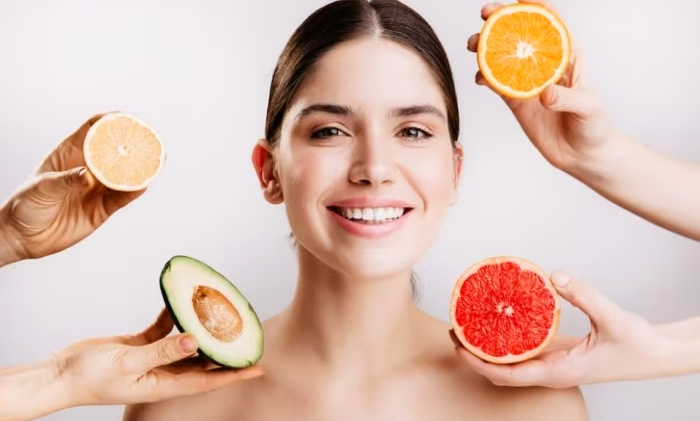Summer heat and humidity: Skincare solutions to protect your skin from seasonal shifts
Seasonal shift plays an important role on human skin and as India belongs to a tropical climate zone, changes in skin and risk of developing skin diseases are seen mostly during shift to summer months.
Heat and increased humidity make the human skin sweatier and risk of being easily macerated.
In an interview with HT Lifestyle, Dr Susmit Haldar, MBBS, MD, DNB, Consultant Dermatologist and Director at Calcutta Skin Institute in Kolkata, explained, “Increased maceration leads to breach on continuity of the skin and invites bacterial and fungal skin disease like, Furunculosis, Carbuncle, Folliculitis, Dermatophytosis (Ring Worm Infection), Candidiasis. These diseases involve different parts of body, especially the body folds where moisture is trapped due to constant covering by clothing.
Infections can be transmitted and further spread to individuals living in an over-crowded place and to people having poor personal hygiene.”
Highlighting that sunlight is also a threat to human skin, causing different types of photo-related skin diseases, Dr Susmit Haldar elaborated, “Acne, Polymorphic Light Eruption, Lichen Planus Pigmentosus, Herpes Simplex Labialis and Sun tanning are a few to name. Sunburn does not usually occur to Indian skin because of abundance of pigment (melanin), but can often be seen in individuals who are devoid of pigment (e.g. vitiligo). Heat stroke is related to a rare skin condition, called Miliaria Profunda, where sweat secretion is completely blocked due to blockage of the sweat duct in deeper level. We see very often the less severe variant of Miliaria (Miliaria Rubra or ‘Ghamori’) in summer, mostly in hot humid weather.”
Bringing her expertise to the same, Dr Swayamsiddha Mishra, MD-DVL, Consultant Dermatologist and Cosmetologist at All About Skin Clinic in New Delhi, said, “Seasonal shifts, particularly the transition to summer, brings longer days, increased outdoor activities, and higher temperatures, which can exacerbate various skin conditions. Indian skin types are more prone to tanning than sunburn due to the higher melanin content in the skin which provides a protective barrier against ultraviolet (UV) radiation. Increased ultraviolet (UV) radiation exposure during summer can cause photodamage, leading to erythema, hyperpigmentation, melasma and accelerated cutaneous aging. Increased sunlight sensitivity due to certain medications, autoimmune disorders may result in redness, swelling or blistering over sun exposed areas precipitating photosensitive reactions.”
Skincare regimen is a must for healthy and radiant skin but Dr Nidhi Jindal, Consultant Dermatology at New town AAI in Kolkata, opined, “This needs to be curated according to an individual’s skin. The regime needs to be altered with temperature and humidity. Your skin can be oilier and experience frequent breakouts in warmer months, hence the need for gel base products and lotions.”
Dr Kusumika Kanak, Consultant Dermatologist at Sahyadri Super Speciality Hospital in Pune’s Hadapsar, recommended, “Adjusting our skincare routines in light of this environmental shift in order to prevent and cure these skin conditions is essential. Summer time brings with it more humidity and moisture and temperature swings that can cause the skin to produce more oil, which aggravates acne.
Furthermore, excessive perspiration can clog pores with debris and oil, making acne worse and perhaps causing other skin problems. Additionally, it’s a period when we’re more exposed to UV radiation, which raises the possibility of sunburn and weakens the skin’s protective layer, leaving it more vulnerable to problems. Solutions for customised skincare are necessary to address these issues. Specialised skincare solutions, particularly sunscreens, play a crucial role in addressing the challenges posed by summer conditions. Sunscreens are essential for protecting the skin from harmful UV radiation, which intensifies during the summer months.”
Dr Rajesh Jaria, Consultant Internal Medicine at PD Hinduja Hospital and MCR in Khar, concluded, “Summer means an increased exposure to sunlight, itchy and painful rashes and an in general assault on the face of the skin. A combination of medical conditions of infective, allergic or injury related origin may be responsible. Acne is hair, sebum, and keratinocytes sticking together, preventing their usual shedding and addition of routine skin bacteria to this ‘stuck-up’ mixture, inducing a reaction called inflammation. Eventually this mixture swells, bursts and leaves behind a crater like scar. Increased heat induces increased sebum production and increased acne breakouts.”

